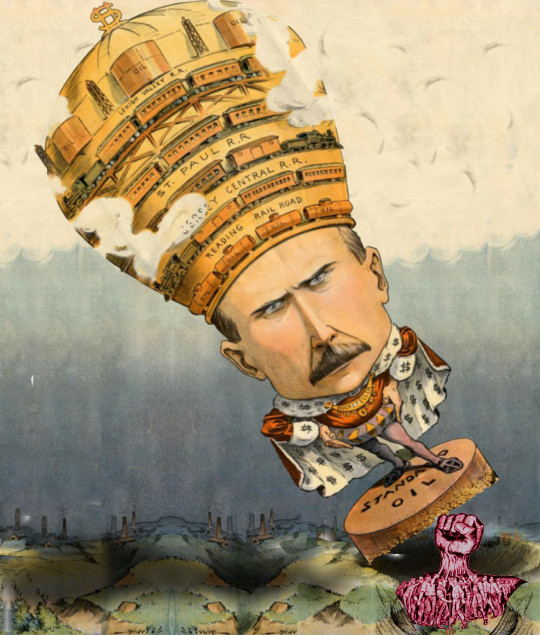#Post-Sales and Marketing Operations
Link
A real estate company will have several things to manage right on time like monitoring the property listing which is listed in different areas and searching for ideal properties to match the new clients, Managing the documentation process, and other transactions.

Hence as a real estate agent/company, you'll be likely to benefit from using a good real estate CRM, or customer relationship management software, which will help you to manage, attract and retain clients; streamline transactions, and close deals on time.
Purplstack helps businesses stay ahead of the curve by seamlessly enabling real-time tracking of leads, sales automation, collection, and customer relationship management trends. It is ready-to-use and highly configurable, therefore, significantly reducing implementation risks and accelerating time to go live enabling quicker business transformation turnarounds and better ROI.
#best real estate crm#real estate lead management#top real estate crm software#top crm systems for real estate#Post-Sales and Marketing Operations#dashboard for sales performance#Pre-Sales and Marketing Operations#sales performance management#sales performance analysis report#real estate crm and lead generation#erp leads india#best lead management software#simple real estate crm#real estate crm software india#crm software for real estate india#best crm companies in india#crm for real estate india#crm for real estate developers#best real estate software#crm for real estate industry#realtor software#top real estate crm#real estate crm systems#best crm in india#best crm for real estate
0 notes
Note
Oh god, I was just giggling so hard at howdy anons ask and your reply about reader letting König wait (sending a smooch to you both ❤️😘). He really deserves to suffer a little like that lol! Just imagining this guy, who likes to see himself as so strong and dominant, especially towards woman, slowly but surely lose his fucking marbles... And all because of that sweet little lady, who has his horniness in a bloody choke hold - not even realising the power she has over him. He's never had to show this much restraint... And he does hold back because, he even more likes to see himself as a gentlemen towards his sweetie (one who will absolutely ruin and wreck her once she let's him off his leash and takes the muzzle off). Poor little Köni.
I can see him letting out this sexual frustration at training for example. He is working these punching bags like absolutely batshit crazy. Destroying gym equipment, because he goes in so hard and has just soooo much pent up energy after every little cuddling session with sweet reader and doesn't know what to do with hit (violently masturbating after being with her hardly helps...). The other operators at the base gym just side eying him and wondering, if he now reached the final state of madness and silently prepare for the explosion that will wipe out all life on earth...
Also: we are really branching out with the toxic König brand here. First the institute, now the book club. I'm loving the growth here. Maby we can establish some kind of co working space next at toxic König headquarters, so we all have a place where we can thirst efficiently and just pump these numbers up even more for Toxic König Inc. (TKI). I can see an involvement in the stock market by next quarter at this growth rate. Maby some Tupperware-esk door to door sales to get more people hooked on to toxic König? (ok, that sounds to much like a cult now...)
Haha this is so crazy, all I wanted was to make Ghost happy, get him laid, perhaps even get him married… but here I am, 6 months later, having this blog and wondering which content warnings to slap on another König post where we discuss his obsession with virgins and their mythical hymen blood 💕
He destroys the punching bag (RIP) and somehow manages to rip the pull up bar from the concrete wall. His deadlifts can be heard all the way to the mess – envious rookies would say König is doing it wrong, that it's a major error in execution, but the veterans know better... This crazy lunatic is simply having trouble with women (again).
But you know what would make König nearly faint?
When sweet innocent reader finally allows his hands roam a bit!
He's allowed to caress her waist as they cuddle, she even lets him bring his huge palm on her tits – it feels like the most erotic thing ever, just to paw those soft breasts over her shirt. And what happens next is that she rolls her hips – König holds his breath – she's actually pressing her ass against his cock. Of course they're still wearing clothes, but her movements are nothing short of sexual.
It makes his brain shut down completely, but soon he's panting in her ear, grinding his groin against the swell of her ass in rhythm with her movements. She doesn't stop him when his hand slowly, tentatively shifts down, then forces its way under the waistband of her pants – ach du Scheiße, it's finally happening… Can this be real?
His fingers slip under her underwear and arrive on her soft mound. He tries to shove his hand further down and into her folds but then – Scheiße – delicate fingers curl around his wrist and pick his hand up from paradise.
"Please… I'm just not ready yet," she explains gently, and the German curses in his mind are loud and foul as König tries to catch his breath and ignore the fact that his boxers are painfully tight and now stained and wet with precum.
"Let me lick your cunt," he offers with a hoarse voice while she's still holding him by the wrist, denying access to her. "Bitte... I just want to have a taste..."
Sweet reader goes tense and turns, looks at the soldier who has a funny accent and weird mannerisms, the soldier who was supposed to be a gentleman, with parted lips and eyes wide from shock.
"König, you can't say things like that…!"
#his head explodes after that#we thought he was a villain but NO this is where his villain arc BEGINS#she drives him to madness#I wonder what happens when König can't play the gentleman anymore 🥹#yandere könig#answered#könig x virgin!reader#könig x virgin reader
462 notes
·
View notes
Text
Tiktok's enshittification

Here is how platforms die: first, they are good to their users; then they abuse their users to make things better for their business customers; finally, they abuse those business customers to claw back all the value for themselves. Then, they die.
If you’d like an essay-formatted version of this post to read or share, here’s a link to it on pluralistic.net, my surveillance-free, ad-free, tracker-free blog:
https://pluralistic.net/2023/01/21/potemkin-ai/#hey-guys
I call this enshittification, and it is a seemingly inevitable consequence arising from the combination of the ease of changing how a platform allocates value, combined with the nature of a “two sided market,” where a platform sits between buyers and sellers, hold each hostage to the other, raking off an ever-larger share of the value that passes between them.
When a platform starts, it needs users, so it makes itself valuable to users. Think of Amazon: for many years, it operated at a loss, using its access to the capital markets to subsidize everything you bought. It sold goods below cost and shipped them below cost. It operated a clean and useful search. If you searched for a product, Amazon tried its damndest to put it at the top of the search results.
This was a hell of a good deal for Amazon’s customers. Lots of us piled in, and lots of brick-and-mortar retailers withered and died, making it hard to go elsewhere. Amazon sold us ebooks and audiobooks that were permanently locked to its platform with DRM, so that every dollar we spent on media was a dollar we’d have to give up if we deleted Amazon and its apps. And Amazon sold us Prime, getting us to pre-pay for a year’s worth of shipping. Prime customers start their shopping on Amazon, and 90% of the time, they don’t search anywhere else.
That tempted in lots of business customers — Marketplace sellers who turned Amazon into the “everything store” it had promised from the beginning. As these sellers piled in, Amazon shifted to subsidizing suppliers. Kindle and Audible creators got generous packages. Marketplace sellers reached huge audiences and Amazon took low commissions from them.
This strategy meant that it became progressively harder for shoppers to find things anywhere except Amazon, which meant that they only searched on Amazon, which meant that sellers had to sell on Amazon.
That’s when Amazon started to harvest the surplus from its business customers and send it to Amazon’s shareholders. Today, Marketplace sellers are handing 45%+ of the sale price to Amazon in junk fees. The company’s $31b “advertising” program is really a payola scheme that pits sellers against each other, forcing them to bid on the chance to be at the top of your search.
Searching Amazon doesn’t produce a list of the products that most closely match your search, it brings up a list of products whose sellers have paid the most to be at the top of that search. Those fees are built into the cost you pay for the product, and Amazon’s “Most Favored Nation” requirement sellers means that they can’t sell more cheaply elsewhere, so Amazon has driven prices at every retailer.
Search Amazon for “cat beds” and the entire first screen is ads, including ads for products Amazon cloned from its own sellers, putting them out of business (third parties have to pay 45% in junk fees to Amazon, but Amazon doesn’t charge itself these fees). All told, the first five screens of results for “cat bed” are 50% ads.
https://pluralistic.net/2022/11/28/enshittification/#relentless-payola
This is enshittification: surpluses are first directed to users; then, once they’re locked in, surpluses go to suppliers; then once they’re locked in, the surplus is handed to shareholders and the platform becomes a useless pile of shit. From mobile app stores to Steam, from Facebook to Twitter, this is the enshittification lifecycle.
This is why — as Cat Valente wrote in her magesterial pre-Christmas essay — platforms like Prodigy transformed themselves overnight, from a place where you went for social connection to a place where you were expected to “stop talking to each other and start buying things”:
https://catvalente.substack.com/p/stop-talking-to-each-other-and-start
This shell-game with surpluses is what happened to Facebook. First, Facebook was good to you: it showed you the things the people you loved and cared about had to say. This created a kind of mutual hostage-taking: once a critical mass of people you cared about were on Facebook, it became effectively impossible to leave, because you’d have to convince all of them to leave too, and agree on where to go. You may love your friends, but half the time you can’t agree on what movie to see and where to go for dinner. Forget it.
Then, it started to cram your feed full of posts from accounts you didn’t follow. At first, it was media companies, who Facebook preferentially crammed down its users’ throats so that they would click on articles and send traffic to newspapers, magazines and blogs.
Then, once those publications were dependent on Facebook for their traffic, it dialed down their traffic. First, it choked off traffic to publications that used Facebook to run excerpts with links to their own sites, as a way of driving publications into supplying fulltext feeds inside Facebook’s walled garden.
This made publications truly dependent on Facebook — their readers no longer visited the publications’ websites, they just tuned into them on Facebook. The publications were hostage to those readers, who were hostage to each other. Facebook stopped showing readers the articles publications ran, tuning The Algorithm to suppress posts from publications unless they paid to “boost” their articles to the readers who had explicitly subscribed to them and asked Facebook to put them in their feeds.
Now, Facebook started to cram more ads into the feed, mixing payola from people you wanted to hear from with payola from strangers who wanted to commandeer your eyeballs. It gave those advertisers a great deal, charging a pittance to target their ads based on the dossiers of nonconsensually harvested personal data they’d stolen from you.
Sellers became dependent on Facebook, too, unable to carry on business without access to those targeted pitches. That was Facebook’s cue to jack up ad prices, stop worrying so much about ad fraud, and to collude with Google to rig the ad market through an illegal program called Jedi Blue:
https://en.wikipedia.org/wiki/Jedi_Blue
Today, Facebook is terminally enshittified, a terrible place to be whether you’re a user, a media company, or an advertiser. It’s a company that deliberately demolished a huge fraction of the publishers it relied on, defrauding them into a “pivot to video” based on false claims of the popularity of video among Facebook users. Companies threw billions into the pivot, but the viewers never materialized, and media outlets folded in droves:
https://slate.com/technology/2018/10/facebook-online-video-pivot-metrics-false.html
But Facebook has a new pitch. It claims to be called Meta, and it has demanded that we live out the rest of our days as legless, sexless, heavily surveilled low-poly cartoon characters.
It has promised companies that make apps for this metaverse that it won’t rug them the way it did the publishers on the old Facebook. It remains to be seen whether they’ll get any takers. As Mark Zuckerberg once candidly confessed to a peer, marvelling at all of his fellow Harvard students who sent their personal information to his new website “TheFacebook”:
> I don’t know why.
> They “trust me”
> Dumb fucks.
https://doctorow.medium.com/metaverse-means-pivot-to-video-adbe09319038
Once you understand the enshittification pattern, a lot of the platform mysteries solve themselves. Think of the SEO market, or the whole energetic world of online creators who spend endless hours engaged in useless platform Kremlinology, hoping to locate the algorithmic tripwires, which, if crossed, doom the creative works they pour their money, time and energy into:
https://pluralistic.net/2022/04/11/coercion-v-cooperation/#the-machine-is-listening
Working for the platform can be like working for a boss who takes money out of every paycheck for all the rules you broke, but who won’t tell you what those rules are because if he told you that, then you’d figure out how to break those rules without him noticing and docking your pay. Content moderation is the only domain where security through obscurity is considered a best practice:
https://doctorow.medium.com/como-is-infosec-307f87004563
The situation is so dire that organizations like Tracking Exposed have enlisted an human army of volunteers and a robot army of headless browsers to try to unwind the logic behind the arbitrary machine judgments of The Algorithm, both to give users the option to tune the recommendations they receive, and to help creators avoid the wage theft that comes from being shadow banned:
https://www.eff.org/deeplinks/2022/05/tracking-exposed-demanding-gods-explain-themselves
But what if there is no underlying logic? Or, more to the point, what if the logic shifts based on the platform’s priorities? If you go down to the midway at your county fair, you’ll spot some poor sucker walking around all day with a giant teddy bear that they won by throwing three balls in a peach basket.
The peach-basket is a rigged game. The carny can use a hidden switch to force the balls to bounce out of the basket. No one wins a giant teddy bear unless the carny wants them to win it. Why did the carny let the sucker win the giant teddy bear? So that he’d carry it around all day, convincing other suckers to put down five bucks for their chance to win one:
https://boingboing.net/2006/08/27/rigged-carny-game.html
The carny allocated a giant teddy bear to that poor sucker the way that platforms allocate surpluses to key performers — as a convincer in a “Big Store” con, a way to rope in other suckers who’ll make content for the platform, anchoring themselves and their audiences to it.
Which brings me to Tiktok. Tiktok is many different things, including “a free Adobe Premiere for teenagers that live on their phones.”
https://www.garbageday.email/p/the-fragments-of-media-you-consume
But what made it such a success early on was the power of its recommendation system. From the start, Tiktok was really, really good at recommending things to its users. Eerily good:
https://www.npr.org/transcripts/1093882880
By making good-faith recommendations of things it thought its users would like, Tiktok built a mass audience, larger than many thought possible, given the death grip of its competitors, like Youtube and Instagram. Now that Tiktok has the audience, it is consolidating its gains and seeking to lure away the media companies and creators who are still stubbornly attached to Youtube and Insta.
Yesterday, Forbes’s Emily Baker-White broke a fantastic story about how that actually works inside of Bytedance, Tiktok’s parent company, citing multiple internal sources, revealing the existence of a “heating tool” that Tiktok employees use push videos from select accounts into millions of viewers’ feeds:
https://www.forbes.com/sites/emilybaker-white/2023/01/20/tiktoks-secret-heating-button-can-make-anyone-go-viral/
These videos go into Tiktok users’ ForYou feeds, which Tiktok misleadingly describes as being populated by videos “ranked by an algorithm that predicts your interests based on your behavior in the app.” In reality, For You is only sometimes composed of videos that Tiktok thinks will add value to your experience — the rest of the time, it’s full of videos that Tiktok has inserted in order to make creators think that Tiktok is a great place to reach an audience.
“Sources told Forbes that TikTok has often used heating to court influencers and brands, enticing them into partnerships by inflating their videos’ view count. This suggests that heating has potentially benefitted some influencers and brands — those with whom TikTok has sought business relationships — at the expense of others with whom it has not.”
In other words, Tiktok is handing out giant teddy bears.
But Tiktok is not in the business of giving away giant teddy bears. Tiktok, for all that its origins are in the quasi-capitalist Chinese economy, is just another paperclip-maximizing artificial colony organism that treats human beings as inconvenient gut flora. Tiktok is only going to funnel free attention to the people it wants to entrap until they are entrapped, then it will withdraw that attention and begin to monetize it.
“Monetize” is a terrible word that tacitly admits that there is no such thing as an “Attention Economy.” You can’t use attention as a medium of exchange. You can’t use it as a store of value. You can’t use it as a unit of account. Attention is like cryptocurrency: a worthless token that is only valuable to the extent that you can trick or coerce someone into parting with “fiat” currency in exchange for it. You have to “monetize” it — that is, you have to exchange the fake money for real money.
In the case of cryptos, the main monetization strategy was deception-based. Exchanges and “projects” handed out a bunch of giant teddy-bears, creating an army of true-believer Judas goats who convinced their peers to hand the carny their money and try to get some balls into the peach-basket themselves.
But deception only produces so much “liquidity provision.” Eventually, you run out of suckers. To get lots of people to try the ball-toss, you need coercion, not persuasion. Think of how US companies ended the defined benefits pension that guaranteed you a dignified retirement, replacing it with market-based 401(k) pensions that forced you to gamble your savings in a rigged casino, making you the sucker at the table, ripe for the picking:
https://pluralistic.net/2020/07/25/derechos-humanos/#are-there-no-poorhouses
Early crypto liquidity came from ransomware. The existence of a pool of desperate, panicked companies and individuals whose data had been stolen by criminals created a baseline of crypto liquidity because they could only get their data back by trading real money for fake crypto money.
The next phase of crypto coercion was Web3: converting the web into a series of tollbooths that you could only pass through by trading real money for fake crypto money. The internet is a must-have, not a nice-to-have, a prerequisite for full participation in employment, education, family life, health, politics, civics, even romance. By holding all those things to ransom behind crypto tollbooths, the hodlers hoped to convert their tokens to real money:
https://locusmag.com/2022/09/cory-doctorow-moneylike/
For Tiktok, handing out free teddy-bears by “heating” the videos posted by skeptical performers and media companies is a way to convert them to true believers, getting them to push all their chips into the middle of the table, abandoning their efforts to build audiences on other platforms (it helps that Tiktok’s format is distinctive, making it hard to repurpose videos for Tiktok to circulate on rival platforms).
Once those performers and media companies are hooked, the next phase will begin: Tiktok will withdraw the “heating” that sticks their videos in front of people who never heard of them and haven’t asked to see their videos. Tiktok is performing a delicate dance here: there’s only so much enshittification they can visit upon their users’ feeds, and Tiktok has lots of other performers they want to give giant teddy-bears to.
Tiktok won’t just starve performers of the “free” attention by depreferencing them in the algorithm, it will actively punish them by failing to deliver their videos to the users who subscribed to them. After all, every time Tiktok shows you a video you asked to see, it loses a chance to show you a video it wants you to see, because your attention is a giant teddy-bear it can give away to a performer it is wooing.
This is just what Twitter has done as part of its march to enshittification: thanks to its “monetization” changes, the majority of people who follow you will never see the things you post. I have ~500k followers on Twitter and my threads used to routinely get hundreds of thousands or even millions of reads. Today, it’s hundreds, perhaps thousands.
I just handed Twitter $8 for Twitter Blue, because the company has strongly implied that it will only show the things I post to the people who asked to see them if I pay ransom money. This is the latest battle in one of the internet’s longest-simmering wars: the fight over end-to-end:
https://pluralistic.net/2022/12/10/e2e/#the-censors-pen
In the beginning, there were Bellheads and Netheads. The Bellheads worked for big telcos, and they believed that all the value of the network rightly belonged to the carrier. If someone invented a new feature — say, Caller ID — it should only be rolled out in a way that allows the carrier to charge you every month for its use. This is Software-As-a-Service, Ma Bell style.
The Netheads, by contrast, believed that value should move to the edges of the network — spread out, pluralized. In theory, Compuserve could have “monetized” its own version of Caller ID by making you pay $2.99 extra to see the “From:” line on email before you opened the message — charging you to know who was speaking before you started listening — but they didn’t.
The Netheads wanted to build diverse networks with lots of offers, lots of competition, and easy, low-cost switching between competitors (thanks to interoperability). Some wanted this because they believed that the net would someday be woven into the world, and they didn’t want to live in a world of rent-seeking landlords. Others were true believers in market competition as a source of innovation. Some believed both things. Either way, they saw the risk of network capture, the drive to monetization through trickery and coercion, and they wanted to head it off.
They conceived of the end-to-end principle: the idea that networks should be designed so that willing speakers’ messages would be delivered to willing listeners’ end-points as quickly and reliably as they could be. That is, irrespective of whether a network operator could make money by sending you the data it wanted to receive, its duty would be to provide you with the data you wanted to see.
The end-to-end principle is dead at the service level today. Useful idiots on the right were tricked into thinking that the risk of Twitter mismanagement was “woke shadowbanning,” whereby the things you said wouldn’t reach the people who asked to hear them because Twitter’s deep state didn’t like your opinions. The real risk, of course, is that the things you say won’t reach the people who asked to hear them because Twitter can make more money by enshittifying their feeds and charging you ransom for the privilege to be included in them.
As I said at the start of this essay, enshittification exerts a nearly irresistible gravity on platform capitalism. It’s just too easy to turn the enshittification dial up to eleven. Twitter was able to fire the majority of its skilled staff and still crank the dial all the way over, even with a skeleton crew of desperate, demoralized H1B workers who are shackled to Twitter’s sinking ship by the threat of deportation.
The temptation to enshittify is magnified by the blocks on interoperability: when Twitter bans interoperable clients, nerfs its APIs, and periodically terrorizes its users by suspending them for including their Mastodon handles in their bios, it makes it harder to leave Twitter, and thus increases the amount of enshittification users can be force-fed without risking their departure.
Twitter is not going to be a “protocol.” I’ll bet you a testicle¹ that projects like Bluesky will find no meaningful purchase on the platform, because if Bluesky were implemented and Twitter users could order their feeds for minimal enshittification and leave the service without sacrificing their social networks, it would kill the majority of Twitter’s “monetization” strategies.
¹Not one of mine.
An enshittification strategy only succeeds if it is pursued in measured amounts. Even the most locked-in user eventually reaches a breaking-point and walks away, or gets pushed. The villagers of Anatevka in Fiddler on the Roof tolerated the cossacks' violent raids and pogroms for years, until they were finally forced to flee to Krakow, New York and Chicago:
https://doctorow.medium.com/how-to-leave-dying-social-media-platforms-9fc550fe5abf
For enshittification-addled companies, that balance is hard to strike. Individual product managers, executives, and activist shareholders all give preference to quick returns at the cost of sustainability, and are in a race to see who can eat their seed-corn first. Enshittification has only lasted for as long as it has because the internet has devolved into “five giant websites, each filled with screenshots of the other four”:
https://twitter.com/tveastman/status/1069674780826071040
With the market sewn up by a group of cozy monopolists, better alternatives don’t pop up and lure us away, and if they do, the monopolists just buy them out and integrate them into your enshittification strategies, like when Mark Zuckerberg noticed a mass exodus of Facebook users who were switching to Instagram, and so he bought Instagram. As Zuck says, “It is better to buy than to compete.”
This is the hidden dynamic behind the rise and fall of Amazon Smile, the program whereby Amazon gave a small amount of money to charities of your choice when you shopped there, but only if you used Amazon’s own search tool to locate the products you purchased. This provided an incentive for Amazon customers to use its own increasingly enshittified search, which it could cram full of products from sellers who coughed up payola, as well as its own lookalike products. The alternative was to use Google, whose search tool would send you directly to the product you were looking for, and then charge Amazon a commission for sending you to it:
https://www.reddit.com/r/technology/comments/10ft5iv/comment/j4znb8y/
The demise of Amazon Smile coincides with the increasing enshittification of Google Search, the only successful product the company managed to build in-house. All its other successes were bought from other companies: video, docs, cloud, ads, mobile; while its own products are either flops like Google Video, clones (Gmail is a Hotmail clone), or adapted from other companies’ products, like Chrome.
Google Search was based on principles set out in founder Larry Page and Sergey Brin’s landmark 1998 paper, “Anatomy of a Large-Scale Hypertextual Web Search Engine,” in which they wrote, “Advertising funded search engines will be inherently biased towards the advertisers and away from the needs of consumers.”
http://ilpubs.stanford.edu:8090/361/
Even with that foundational understanding of enshittification, Google has been unable to resist its siren song. Today’s Google results are an increasingly useless morass of self-preferencing links to its own products, ads for products that aren’t good enough to float to the top of the list on its own, and parasitic SEO junk piggybacking on the former.
Enshittification kills. Google just laid off 12,000 employees, and the company is in a full-blown “panic” over the rise of “AI” chatbots, and is making a full-court press for an AI-driven search tool — that is, a tool that won’t show you what you ask for, but rather, what it thinks you should see:
https://www.theverge.com/2023/1/20/23563851/google-search-ai-chatbot-demo-chatgpt
Now, it’s possible to imagine that such a tool will produce good recommendations, like Tiktok’s pre-enshittified algorithm did. But it’s hard to see how Google will be able to design a non-enshittified chatbot front-end to search, given the strong incentives for product managers, executives, and shareholders to enshittify results to the precise threshold at which users are nearly pissed off enough to leave, but not quite.
Even if it manages the trick, this-almost-but-not-quite-unusuable equilibrium is fragile. Any exogenous shock — a new competitor like Tiktok that penetrates the anticompetitive “moats and walls” of Big Tech, a privacy scandal, a worker uprising — can send it into wild oscillations:
https://pluralistic.net/2023/01/08/watch-the-surpluses/#exogenous-shocks
Enshittification truly is how platforms die. That’s fine, actually. We don’t need eternal rulers of the internet. It’s okay for new ideas and new ways of working to emerge. The emphasis of lawmakers and policymakers shouldn’t be preserving the crepuscular senescence of dying platforms. Rather, our policy focus should be on minimizing the cost to users when these firms reach their expiry date: enshrining rights like end-to-end would mean that no matter how autocannibalistic a zombie platform became, willing speakers and willing listeners would still connect with each other:
https://doctorow.medium.com/end-to-end-d6046dca366f
And policymakers should focus on freedom of exit — the right to leave a sinking platform while continuing to stay connected to the communities that you left behind, enjoying the media and apps you bought, and preserving the data you created:
https://www.eff.org/interoperablefacebook
The Netheads were right: technological self-determination is at odds with the natural imperatives of tech businesses. They make more money when they take away our freedom — our freedom to speak, to leave, to connect.
For many years, even Tiktok’s critics grudgingly admitted that no matter how surveillant and creepy it was, it was really good at guessing what you wanted to see. But Tiktok couldn’t resist the temptation to show you the things it wants you to see, rather than what you want to see. The enshittification has begun, and now it is unlikely to stop.
It's too late to save Tiktok. Now that it has been infected by enshittifcation, the only thing left is to kill it with fire.
[Image ID: Hansel and Gretel in front of the witch's candy house. Hansel and Gretel have been replaced with line-drawings of influencers, taking selfies of themselves with the candy house. In front of the candy house stands a portly man in a business suit; his head is a sack of money with a dollar-sign on it. He wears a crooked witch's hat. The cottage has the Tiktok logo on it.]
#pluralistic#Lauren Leffer#tiktok#surplus allocation#fauximation#potemkin ai#the algorithm#creative labor#algorithms exposed#enshittification#bytedance#giant teddy bears#convincers#big store con#pivot to video#scissor bucket#Emily Baker-White
938 notes
·
View notes
Text

Welcome to The Simblr Office Directory
This blog is an archive of the submissions for the office-centric OC prompt posted by the light of Simblr, @kashisun.
Here you can browse all the amazing creations submitted by your fellow simblrs. Feel free to scroll to your delight or click one of the links under the cut to see who's on roster under (or over) a particular bureau or delegation.
Want to be added to the directory or confirm that you've been queued? Just include a link to your post in an ask off anon and it will be queued within 48 hours. Until we get through the backlog and can queue at a more leisurely pace, all ask submissions will receive a confirmation. You can always mention us, but we won't be able to provided confirmation for that method.
Leaving the company? If you'd like your post removed, just include a link to the post in an ask off anon and it will be removed. Sideblogs may require additional verification. Please allow, at most, 48 hours for the request to be honored. Removal requests will not be confirmed, only acted upon.
Every company's hierarchy is a little different. Designations for this directory are based on some of the companies I've worked for, but especially on the multi-media marketing company I work for now.
Bureaus and Their Delegations
Delegations with an * currently have low or no headcount (posted and queued). Excludes leadership.
Bureau of Client Engagement
Leadership
Billing*
Escalations*
Product Support*
Quality Assurance*
Sales*
Bureau of Compliance (Bureau-specific Internal Affairs and Auditing)
Leadership
Client Engagement*
Facilities*
Finance*
Human Resources*
Information and Technology*
Legal (General)
Legal (Leadership)
Marketing*
Bureau of Facilities
Leadership
Catering*
Environmental (Janitorial, HVAC, and Plumbing)*
Mechanical (Electrical, Elevators, Equipment Maintenance)*
Premise* (Grounds Maintenance and Real Estate)
Purchasing* (From pushpins to pallet jacks)
Security
Warehousing* (Shipping, Receiving, Mail room, and Inventory)
Bureau of Finance
Leadership
Accounting
Asset Management*
Investments*
Travel and Accommodations*
Vendor Relations*
Bureau of Human Resources
Leadership
Career Development (Internships and Internal Role Transitions)
Dependent Care*
Employee Activities Committee (Members are volunteers)
Employee Benefits*
Floating Delegates (Administration) (For profiles that list a nondescript secretary/admin/receptionist/assistant role)
Floating Delegates (General) (For profiles that do not list a position)
Floating Delegates (Leadership) (For profiles that list a nondescript managerial role)
Health Services*
Payroll*
Recruiting*
Training*
Union Relations*
Bureau of Information & Technology
Leadership
Data Security*
Infrastructure*
Public Relations
Research and Development*
Systems and Devices*
Telecommunications*
Bureau of Marketing
Leadership
Copy
Design
Planning and Implementation*
Board of Directors
Chief Officers
CEO - Chief Executive Officer/President
COO - Chief Operations Officer/Vice President
CCO - Chief Compliance Officer/Vice President
CFO - Chief Finance Officer/Vice President
CITO - Chief Information and Technology Officer/Vice President
CMO - Chief Marketing Officer/Vice President
Executive Administration* (Admins that report to chief officers)
204 notes
·
View notes
Note
Saw your comment on a post about Sound of Freedom and I came here to say.....shame on you. Shame. On. You. Since when is child trafficking a political issue? Since when is calling pedophilia bad a political issue? If you have a problem with this movie then maybe YOU'RE the problem. No better than the big Disney fat cats who tried to suppress this movie and keep it shelved. Or theaters messing with the ac and saying seats are sold out when they're empty. Shame on you! God's children are not for sale!
I wish people would do a little more research on this topic. If Hollywood and the "powers that be" didn't want this movie being seen, it wouldn't have been released in over 3000 theatres countrywide. It's being shown in major and minor locations all across America and Canada, and the vast majority of those locations aren't having any problems.
Case and point, my own mother and her friend went to see it last week and everything was fine. No issues whatsoever and the seats were packed. The movie isn't being "suppressed". This is all a marketing gimmick from the production company Angel Studios, a Christian streaming service. The movie is jam-packed with lies and only serves to glorify Tim Ballard, the man the movie is based on, and Christianity as a whole. I truly wish this wasn't political, but it is. They made it political.
Tim Ballard has provably exaggerated or fabricated many, if not most of his "rescues", and his organisation, Operation Underground Railroad, has been widely criticised by professional anti-sex trafficking organizations (including other Christian-based ones) for years. He has accumulated millions of dollars for his so-called "non-profit" organisation, and he runs several for profit organisations on the side. Most of this money is presumably pocketed by Ballard and his cohorts, as millions is unaccounted for and only a sliver goes to OUR. It's not about "saving children", it's about money and spreading Ballard's religious ideology.
This is compounded by the fact that Ballard, before he left the CIA, was almost always the last officer to arrive on any scene where child sex trafficking was involved, yet he somehow has hundreds of stories where he's singlehandedly rescued children. In fact, the "true story" the film is based on, where Ballard apparently saved a five year old boy—who, by Ballard's own account, ran up to him, hugged him, and begged to be taken away—didn't even happen. According to court receipts from the arrest and trial of Earl Venton Buchanan (the pedophile in possession of the little boy), Ballard arrived at the scene long after the boy was rescued and taken into custody, and he was barely involved. The documents can easily be found online under the San Diego incident reports.

Ballard was also caught lying about saving one particular girl named Liliana, the literal poster child for OUR. As it turns out, Liliana rescued herself by escaping her captors when she was seventeen and being trafficked in New York. Even more egregious, every time Ballard told her story, he would lower her age to garner more sympathy ... as if her being seventeen wasn't sad enough. In one instance, he claimed she was 14. In another, he claimed she was 11. Ballard also exploited Liliana's story as a reason for needing stricter border patrols and a better wall, despite the fact that she was being abused in America. There is no evidence to suggest OUR had anything to do with her rescue.
Ballard and his "organisation" have even ruined entire legitimate rescue operations in other countries and put children at risk, like in the Dominican Republic, where he endangered the lives of 26 girls by playing vigilante, being followed around by a camera crew, and causing a shootout that effectively traumatised the children he used as a prop to lure in buyers. His response to the mishap and rightful criticism by the Dominican police was basically, "Well ... you win some, you lose some."
The children were released without receiving any therapy or rehabilitative care, and Anne Gallagher, the leading global expert on the international law on human trafficking, said that OUR has an "alarming lack of understanding about how sophisticated criminal trafficking networks must be approached and dismantled" and went on to call the work of OUR "arrogant, unethical, and illegal". Those children easily could've been shot and killed. This occurred in 2014, but Ballard still insists that his "rescues" be filmed, and he even pitched it as a reality TV show. His reasoning for this, he says, is to "spread awareness", but we all know it's because he loves the spotlight.
Entire law enforcement agencies have actually cut ties with or even condemned OUR, such as Washington State Law Enforcement, as a result of Ballard's proclivity to conflate child sex trafficking with consensual adult sex work. Ballard and OUR regularly set up sting operations and lambasted the men who showed up for kink play, publicly branding them as pedophiles, even though the men in question were under the impression that they were meeting for sex with consenting, adult women. This led to several lawsuits against OUR, all of which they rightfully lost.
Ballard's means of gathering intelligence is also questionable, as he, by his own admission, sometimes consults psychic mediums for information on missing children and asks where they're being held captive. I genuinely wish I was joking about that.
The main actor in Sound of Freedom, Jim Caviezel, also has ties to the Qanon movement, and Caviezel himself is a hardcore conspiracy theorist. He believes that Donald Trump is "the new Moses" and that "liberals [literally] drink the blood of children". This is ironic, considering Caviezel and Ballard both met Trump several times, yet never pressed him for information regarding Epstein's client list. Moreover, Caviezel and Ballard both donate to the Catholic Church, which funds the largest child sex trafficking ring on the southern border and has a history of rampant sexual abuse of children. Even more insane, Caviezel admitted to watching child porn, to apparently "get in character" for the movie. He claimed that if Ballard had to watch it, it only "made sense" that he'd have to watch it, too. To "motivate" him to fight child trafficking.
...Alright, bud.
Surprise, surprise, both men are also outspokenly anti-LGBTQ+, despite the fact that children/teens in that community are statistically more likely to be trafficked. The majority of child trafficking is not the result of random kidnappings, as the movie would have you believe. The majority of children are actually recruited into sexual exploitation by a family member or friend/boss. The majority of those children are also not generally passed around in Mexico, like this racist, white savior-oriented movie would have you believe, but they actually either stay in or end up in America. America is, in fact, the largest consumer of child porn and child sex slaves this side of the globe (and nearly the largest producer), yet the movie depicts almost every pedophile as Mexican or some other non-white race.
At the end of the movie, Ballard comes on screen and asks people to donate/buy tickets for others, so that the movie can spread awareness. This is why so many seats in certain theatres are empty, despite websites saying the seats are sold out. Whether or not Angel Studios is also shadow purchasing tickets to boost sales can't be proven, obviously, but I wouldn't put it past them. These "conspiracies" have all served to market the movie and boost ticket sales.
As for Disney trying to keep the movie shelved, that's also a lie. Yes, Disney did technically shelve the movie when they bought Fox, since it didn't exactly correspond with its family-friendly brand, but they had no problem with the movie being released under a different studio. The actual reason Sound of Freedom was in "production hell" for five years was because Tim Ballard kept trying to milk donations. Despite the fact that filming wrapped up in 2018, he kept asking for more and more and more. He used people's faith and understandably emotional response to something as wicked as pedophilia to rake in millions. That's what Ballard is really about, money and stardom. In the movie, there's even a post-credit message where Jim Caviezel says the movie was held back to "maximize its distribution and raise awareness about child sex trafficking".
Translation: Ballard greedy.
Ballard himself admitted the accuracy of this movie "isn't important", and that he just wanted to get the movie out to "spread the word". By that, he of course means the Christian word—but why should fighting child sex trafficking be tied to religion? At the end of the day, Sound of Freedom is a vanity project, and it spreads incredibly dangerous misinformation. Stranger still, Ballard left the OUR just prior to the debut of Sound of Freedom, a fact he's neglected to mention in every interview regarding the movie. It's not clear why he left, but it seems that he fled after an internal investigation into the organisation began. That's not too suspicious or anything. My guess is authorities are trying to find out were all that missing money went, and Ballard doesn't want to be there when they figure it out.
By the way, that final line you hit me with; "God's children are not for sale", the line from the movie that Ballard claims a fellow agent whispered to him while on a case, as well as the title of the movie, which another agent supposedly said to Ballard after a giant rescue operation—those were lies, too. No agents ever said that to him. The police reports for those cases, as well as the agents Ballard supposedly quoted, all said he was the last to arrive on the scene and those conversations never happened.
Ballard cannot be trusted and Sound of Freedom is based on a lie. It's a scam. Everything he does is a scam. All he cares about is spreading his ideology, making money, and looking like a superhero. And this is only the tip of the iceberg. Look into his other companies, and into the ex-military soldiers and police officers who left OUR because of how poorly trained their people are when it comes to rescue operations.

Every sane person knows pedophilia and human trafficking is wrong, but giving your money to Qanon-adjacent, right-wing leaning, LGBTQ+-hating, Catholic Church-sympathising, fame-chasing, money-hungry, perpetual liar Tim Ballard isn't going to help.
The best way to help out is learning about the signs of child trafficking. Keep an eye out for any children that might be getting abused. If you suspect something, report it, don't be a silent bystander. Volunteer within your community to make sure the children in your area have food and resources, support LGBTQ+ youth, and watch the other adults around you to ensure they're not acting inappropriately. You can also donate to social programs that create safe spaces for children and even apply for jobs that specialise in these fields. Don't go to see a movie just because it aligns with your religious beliefs, feel sad for a little while, then sit on your ass and let Tim Ballard handle everything.
#sound of freedom#tim ballard#jim caviezel#christianity#child trafficking#propaganda#angel studios#I can't believe you made me defend Disney
188 notes
·
View notes
Text


human resources management pt.3
this post is the third part to my little business exam revision series. the reason that i am making these posts is to study for my exam in a more enjoyable way.
part 1 | part 2 | part 4
today's post (written 27-05 and scheduled) focuses on pay and remuneration, performance appraisal, and recruitment and selection.
pay and remuneration
these two items make up one hrm topic. pay (generally) refers to wages, salaries, bonuses commissions, incentives, etc.. remuneration refers to monetary and non-monetary benefits such as sick leave and gym reimbursement. the purpose of pay and remuneration is to attract and retain employee talent, as well as to boost productivity and foster employee satisfaction.
let's focus on one example from pay and one from remuneration.
one example of pay includes commission, which refers to monetary incentives awarded to employees for hitting sales targets or other goals. the benefits of commission include increased employee motivation and potentially higher pay. however, customer satisfaction may be affected if employees are too focused on earning commission.
for remuneration, an example is paid time off. vacation days, sick leave, and other types of leave promote work-life balance and employee wellbeing. this may be costly for a smaller business, so remuneration packages must be well thought out and other departments (finance, marketing) must be worked with to achieve a well-rounded final package.
performance appraisal
performance management is a continuous process of identifying, measuring and aligning performance with the strategic goals of an organization. features of this hrm topic include clear goal alignment, continuous feedback, performance metrics, and KPIs (key performance indicators).
an advantage of performance appraisal is an increase in employee engagement because an employee's productivity directly correlates to their engagement experience. moreover, when performance appraisal is done well, businesses see a decrease in attrition rates. high employee turnover results in greater costs of hiring, lower productivity, and utilization of resources and time to train new people according to company objectives. performance appraisal works to combat this and reduce the cost of hiring.
performance appraisal may provide a challenge for companies since the basic system is to try and create a one-size-fits-all model. this simply does not work. employees might also feel demotivated due to perceived unfair evaluations during appraisal.
recruitment and selection
this is the largest hrm topic so far - and can be broken down into three main parts. internal recruitment, external recruitment, and the selection process.
internal recruitment is the action of filling roles through promotion and considering current employees to fill gaps. a business may choose to recruit internally because it can be cheaper, and quicker, and the business already knows the employee. this means that the employee is already familiar with the business and its operations. however, internal recruitment creates new vacancies - then, external recruitment must come in.
external recruitment refers to hiring employees who are not already in the company. this occurs when companies are looking for new perspectives/ideas, increased diversity, or when old positions need to be filled (when an employee has transferred/been promoted).
this can welcome a wider pool of applicants, fresh ideas, and increased experience and skills. however, external recruitment does not always result in recruiting a person who fits the job (or company).
in order to hire an employee, a hiring team must go through the selection process. it is a process that involves evaluating candidates based on their qualifications, experience, and other relevant factors to determine who is the most suitable for a particular job.
a proper structure is vital for effective and efficient recruitment and selection. here is the typical recruitment process:
- identification of job vacancy
- conducting job analysis
- preparing recruitment documentation
- advertising the vacancy
the general selection process:
- shortlisting applicants
- conducting interviews and assessments
- selecting a successful applicant/s, and offering them the role
when performing recruitment and selection, the hiring team must decide how to assess a candidate. the two most common ways to do this is through an interview, or an assessment (or a combination).
interviews explore the applicant's personality and attitude - as well as discussion of their abilities and skills. although, this can be time-consuming, costly, and it doesn't always lead to the selection of the best applicant available.
assessments also look at the candidate's abilities, skills, personality and attitude, but in a more on-the-job way. the pressure from assessments may limit the applicant from exerting their true capabilities.
///
the hrm topics explored so far include demographic change, employee welfare, flexi-time, gig economy, immigration, pay and remuneration, performance appraisal, and recruitment and selection.
thank you for reading! i look forward to any feedback or questions from other ibdp business students (or anyone interested in business).
❤️ nene
image source: pinterest
#elonomh#that girl#student#productivity#student life#becoming that girl#academia#elonomhblog#chaotic academia#study blog#human resources management#ibdp student#ibdp#study#studying#100 days of studying#studyblr#study aesthetic#study community#study inspiration#study inspo#study notes#study space#study tips#study motivation#study hard#studyblr community#studyabroad#study with me#studygram
37 notes
·
View notes
Text
from this article released 12/8 about wyb’s effect on YAYA after being their spokesperson. Their brand director Suki, was interviewed and they gave some insight on WYB being the face of the brand.
“Wang Yibo has led YAYA to become a "super dark horse". Is spokesperson marketing okay again?”


Wang Yibo ’s three-wear goose down jacket with a removable inner lining sold out 120,000 pieces during Double 11 . Suki said, "We have deep stockings of styles for artists' upper body in advance, but the final total sales volume is really surprising. We all joked that the specially opened " Yibo dedicated production line " was so busy that it was smoking. For this reason, we have Hundreds of production lines that have been put into production to meet consumer demand."
On the day it was officially announced that Wang Yibo became the chief spokesperson for YaYa down jackets, the total online transactions in all channels reached 200 million+; Douyin single-day women's clothing top 1; Tmall clothing live broadcast TOP 1, Tmall men's clothing TOP 1, Tmall women's down jackets TOP 1 , Tmall men’s down jacket TOP1.
Q: How did you come up with the idea of asking Wang Yibo to be your spokesperson?
Suki : Yaya has a brand development history of more than 50 years. After the share reorganization in 2020, we vigorously promoted the rejuvenation strategy. The spokesperson is our effective contact point with consumers.
Wang Yibo is a new generation artist born after 1995. He has multiple identities such as actor, singer, race car driver, and dancer. He has both national and commercial influence.
Q: Are there any challenges in this collaboration?
Suki : Yes, the cooperation with Wang Yibo itself is also a process of testing the strength of the brand . We noticed that Wang Yibo has many endorsements, including endorsements for high-end luxury brands and TOP endorsements in various sub-categories. As a brand in the down jacket subcategory, YaYa has experienced relatively rapid growth in market performance after the share reorganization in recent years. Combined with the brand's accumulation and renewal of brand assets over more than 50 years, it finally successfully passed the layer-by-layer review of the artist team and the demands of both parties. And the fit is very high.
Of course, cooperation with top-notch artists does not happen overnight. It ends with a Weibo post on the day of the official announcement. The core test is the brand's ability to undertake, whether it is your products, operations or brand marketing, the ability to undertake will be tens of millions of times. Magnify infinitely with the attention.
Q: How do you feel about working with Wang Yibo’s team overall?
Suki : Professional . They already have a very mature and standardized cooperation process through many cooperations with high-end luxury brands and top brands in various sub-categories, and the docking team has high business literacy. Our overall communication with the artist team is very efficient.
Q: What is the logic behind choosing these celebrities to sign?
Suki : 1 (top) + N (artists of multiple styles) diversified spokesperson matrix system.
The existence of male spokespersons is to increase the proportion of Yaya men's clothing . YaYa's current market sales situation shows that the proportion of women's clothing is higher than that of men's clothing. In addition to Wang Yibo, we also cooperate with male artists such as Chen Zheyuan, Cheng Lei, and Zhou Yiran . They are all niche actors who have produced hit dramas in recent years and have their own loyal fan groups. In addition, when it comes to the choice of upper body styles, we will also select some unisex styles for female fans to choose from.
63 notes
·
View notes
Note
Nelaaaa!!! BB TODAY I AM HERE FOR SOME NELA X LEVI HEADCANONSJDJD .. tell me the little stufff toooooooo 🤍
Hi lovely. This one was so fun to write. <3 thank you for the request and please let me live in my delulu world 🌎
Levi and I currently live in Marley (What's left) in a coastal town where the streets finish at the beach.
Levi, though he doesn't admit it, is still afraid of the elevator. He just can't trust it. It jars him when it quivers right before stopping, and he hates it's tight and stuffy. He prefers swallowing the pain in his leg to risking getting stuck and climbs the stairs up to the third floor. And it is worse when the chains start to screech pleading for maintenance. In his defense, he claims it is a great exercise. He takes his time and says hi to the brats who live in the second floor. Sometimes he brings them desserts from the tea shop.
Levi loves sea food, specially shrimps. That is why I took some cooking classes with Niccolo. Steamed, stir-fried, tempura, in pastas, salads, rice and ceviche, I had to learn every preparation. Though we usually eat at home, we love trying new restaurants in town. From fancy to fast food. Once I tried to cajole Levi to a street food stall but he refused, questioning their cleaning procedures.
Levi owns a tea shop downtown that has been awarded twice by the city's chamber of commerce for excellence, quality and service. He was interviewed and his photo appeared in the newspaper, with Gabi and Falco thumbing up behind him. We still have the clippings of the articles, and Levi had the stars framed. He spends all day drinking tea, doing accounts, making payments to suppliers, bossing everyone around, the latter his favorite. When he loses his patience, he jabs the staff with his walking stick on the back of their knees. He also likes to go on Sundays to the spice market where herbs and spices from all corners of the world are found. He takes them home and experiments with them to develop new blends. Although sometimes we have purged by accident.
Meanwhile, I work at the post office right across the street and in my break time we had lunch together in his office and take naps.
We spend hours in the cleaning supplies aisle because Levi can't decide between lavender, cinnamon and apple or citronella. In any case, he decides on all three. One day after work, he brought home a wooden barrel with a crank handle. He explained that it was for washing clothes, although it took me a while to understand how it was operated. He acquired it at a home novelty fair after the inventor convinced him by promising to make our lives easier. I thought it was a scam, but he made it work! It really saves us time and I don't have to ruin my manicure anymore.
On my last birthday, Levi got me a gramophone. We love dancing in the living room despite our clumsy feet, and we’re often off the beat. But who cares, with a drop of wine sprinkling the mix, we hardly notice it. I’ve been collecting discs from thrift stores and garage sales, cramming our place, so Levi felt compelled to build a box to store them safely.
As you might guess, Levi is little fond of PDA. He only feels confortable holding hands, however, from time to time I’d steal a kiss to tease him. He grunts and mellows right after, blushing like a teenage boy kissing his crush for the first time. In private, on the other hand, he’s embarrassingly clingy (don’t ever mention it). When we’re reading in the sofa, he’d snuggle on my chest and loves it when I drop kisses on his head and coddle him. He loves hugs from the back and unexpected kisses on the cheek. Levi is milk with sugar but needs to keep a reputation.
We love traveling. For our honey moon, we visited a tropical island in hizuru. Roasted on the beach all day. He’s still wary of the sea water, can’t stand the slimy animals brushing his legs. But he enjoyed the scenery, the food, drinks and long loving sexy sessions in our suite with ocean view. We’ve been to other places, even though the voyage makes us seasick. We’ve seen temples, museums, archeological sites, lavender fields, all captured in photo albums.
Levi and I live a slow, tranquil life after the war. I think that we deserve that respite. <3
#levi ackerman#aot#attack on titan#snk#levi attack on titan#shingeki no kyojin#snk levi#levi aot#levi x reader#levi x you#levi ackerman x reader#levi ackerman x you#levi ackerman x y/n#levi x y/n#levi ackerman/you#levi ackerman/reader#aot levi#levi ackerman attack on titan#levi ackerman fluff
44 notes
·
View notes
Text

im excited to announce something thats been cooking up in my brain for awhile… i am starting a writing collective/independent publishing operation for thee fellow neo beats called JUNKIE SCHOLAR PRESS (JSP)…basically i will be collecting submissions in either digital or print form and then posting and publishing them through the platform (tumblr, ig, substack, big cartel for print, and my website)
this isnt a for profit thing it is basically just an opportunity for new creators to market yr work and so that you can say youve published…thats self explanatory for digital posts and for physical copies, you are still the sole owner of everything and any profit made through sales are 100% paid to you…
anyway message me if you want to submit yr work…content im looking for includes zines, poetry collections, chapbooks, essay anthologies, long form essays, novellas and short novels, art and photography, and more…the topic can be anything (doesnt need to be abt drugs) however anything that could be categorized as under the “beat” genre is a plus
tumblr is the best way to reach me but also
ig at theworstgirlintheworld
86 notes
·
View notes
Text
I have been contacted by multiple multi-level marketing "job opportunities" this week.
It's starting to occur to me -- and nobody really tells you this -- that unless you are looking for something specific (and probably not entry-level), Indeed is not the place to look for jobs. I was applying for jobs pretty indiscriminately on there a few days ago, and have since been contacted by what looks to be multiple multi-level marketing (MLM) schemes.
Here are some red flags I've found in these job postings that point toward a pyramid structure:
[Company] is a [PR/marketing agency/local startup] that is looking for outgoing, motivated candidates who are just out of college or looking to make a career change!
[Company] will pay for you to be trained in business and sales, so don't worry if you don't have prior experience! This is an entry-level role with HUGE opportunities for growth!
You'll have networking and travel opportunities, such as leadership development conferences and seminars!
Sounds good, right? But if you look up these companies on Glassdoor, you'll either find nothing or you'll see a mix of reviews:
positive reviews from the current employees who are incentivized to talk up the company
negative reviews from former employees that will often flat-out tell you it's an MLM
there's a lot of repetition in the phrases you'll see across the board: "a great opportunity," high turnover/burnout, manipulative management, lack of transparency, no job security, "hard work pays off," "not for everyone"
sometimes you'll find out that the company was renamed from another company, and if you look that company up, you'll find even more bad reviews explicitly calling it a pyramid scheme/MLM
If you go to the company website, you'll see a clean interface with stock photos of people looking happy, and all of the "who we are" text on the site will be utter jargon that doesn't explicitly tell you what the company does. It will tell you, however, that they're hiring now!
If you make it to the interview portion, (which, if you apply, you almost certainly will, because these companies are preying on people who are desperate for a job) you will be rushed through an initial interview, which will look something like this:
You'll be interviewed alongside another candidate or in a group.
It's a quick 10-minute getting-to-know-you call so the company can see if it's a good fit.
They will ask you to tell them (in front of the other candidates) what you would bring that makes you stand out.
They will ask you if you have reliable transportation.
They will go over the "job description" without ever making it clear what the day-to-day looks like.
They'll tell you about how you're going to be trained in different departments. The departments will have names like "Marketing & sales," "HR & PR," "Leadership development," "Logistics, numbers, and operations," and "Client relations." This is an actual example from a Zoom interview I just did less than an hour ago. These are the "departments" of this company, according to my interviewer.
They'll emphasize that expansion is the goal. Top-level customer acquisition. Their clients are looking to open to new markets, so they're looking for go-getters to quickly fill the role.
IF YOU ASK A QUESTION ABOUT THE COMPANY, THEY WILL DO EVERYTHING IN THEIR POWER NOT TO ANSWER IT. They'll tell you that you'll have the opportunity to ask as many questions as you want if you make it to round two; they'll tell you they have another interview in 2 minutes and don't have time to answer your questions; they'll repeat that this is a preliminary getting-to-know-you call, so there's no need to get into the details just yet.
If you do manage to get a question in, they'll put as vague & positive a spin on it as they can. I asked if the company I interviewed with was a new company (because I couldn't find it on BBB or Glassdoor) and the interviewer told me yes, it's a "branch-off company" to a company that's been around for a few years. He did not tell me what that company was, and I didn't ask, because at that point I knew I wouldn't get a straightforward answer either way.
Y'all, if you find a job that raises any red flags for you, DO YOUR RESEARCH. You should be looking up any company that reaches out to you. Find their website. Read their reviews on Glassdoor and Better Business Bureau. BE SMART AND DON'T LET THESE COMPANIES PREY ON YOU.
56 notes
·
View notes
Text
Gas Station Stream of Consciousness Post
Gas Stations as Liminal Spaces

I've had quite a few hyperfixations in my day - ATMs, laundry detergents, credit cards - so my current one pertaining to gas stations is fitting considering my affinity for liminal spaces and the dedication of this blog to them. Liminal spaces are transitory in nature, hence their portrayal in online circles through photos of carpeted hallways, illuminated stairwells, dark roads, and backrooms, among other transitional points.

Gas stations are posted online as well; images of their fuel pumps or neon signage photographed through a rainy car window communicate their liminality and the universal experiences they provide to all of society. Perhaps they are the ultimate specimen of a liminal space. The machines they are created for, automobiles and tractor trailers alike, themselves are tools for motion, vestibules that enable travel and shipment across long distances at high speeds. Cars and roads are liminal spaces, albeit in different formats, and gas stations serve as their lighthouses. Vehicles at filling stations, therefore, are in a sense liminal spaces within liminal spaces within liminal spaces.

The uniqueness of a gas station as a liminal space, however, is its intersection with the economics and aesthetics of capitalism. Gasoline (and diesel fuel) is a commodity, downstream from crude oil, merely differentiated by octane ratings. Some argue that minute distinctions between agents, detergents, and additives make some brands better than others. Indeed, fuels that are approved by the Top Tier program, sponsored by automakers, have been shown to improve engine cleanliness and performance, but this classification does not prefer specific refiners over others; it is simply a standard. To a consumer, Top Tier fuels are themselves still interchangeable commodities within the wider gasoline commodity market.
The Economics of Gas Stations

The market that gas stations serve is characterized by inelastic demand, with customers who reckon with prices that fluctuate day in and day out. This is not to say that consumer behavior does not change with fuel prices. It has been observed that as prices rise, consumers are more eager to find the cheapest gas, but when prices fall, drivers are less selective with where they pump and are just happy to fill up at a lower price than last week. In response, gas stations lower their prices at a slower rate than when increasing prices, allowing for higher profit margins when wholesale prices fall. This has been dubbed the "rockets and feathers" phenomenon.

When portrayed as liminal spaces, gas stations are most often depicted at night, places of solitude where one may also enter the adjacent convenience store and encounter a fellow individual who isn't asleep, the modern day lightkeeper. The mart that resides at the backcourt of a gas station is known to sell goods at higher prices than a supermarket, simultaneously taking advantage of a captive customer, convenient location, and making up for the inefficiencies of a smaller operation. It may come as no surprise, then, that gas stations barely make any money from fuel sales and earn their bulk through C-store sales. This is a gripe I have with our economic system. Business is gamified, and in many cases the trade of certain goods and services, called loss leaders, is not an independent operation and is subsidized by the success of another division of a business, a strategy inherently more feasible for larger companies that have greater scale to execute it.

Nevertheless, most gas station owners, whether they have just one or hundreds of sites, find this method fruitful. Even though most gas stations in the US sell one of a handful of national brands, they operate on a branded reseller, or dealer, model, with oil companies themselves generally not taking part in the operations of stations that sell their fuels. The giants do still often have the most leverage and margin in the business, with the ability to set the wholesale price for the distributor, which sells at a markup to the station owner, which in turn will normally make the least profit in the chain when selling to the end customer at the pump. This kind of horizontal integration that involves many parties lacks the synergies and efficiencies of vertical integration that are so applauded by capitalists, but ends up being the most profitable for firms like ExxonMobil, who only extract and refine oil, and on the other end of the chain merely license their recognizable brands to the resellers through purchasing agreements. Furthermore, in recent years, independent dealers have sold their businesses to larger branded resellers, in many cases the ones from whom they had been buying their fuel.
A Word on ExxonMobil's Branding Potential

The largest publicly traded oil company in the world is Exxon Mobil Corporation. It is a direct descendent of the Rockefeller monopoly, Standard Oil, which was broken up in 1911 into 34 companies, the largest of which was Jersey Standard, which became Exxon in 1973. This title was generated by a computer as the most appealing replacement name to be used nationwide to unify the Humble, Enco, and Esso brands, decades before AI was spoken of. The latter brand is still used outside of the United States for marketing, arising from the phonetic pronunciation of the initials of Standard Oil. In 1999, Exxon and Mobil merged, and the combined company to this day markets under separate brands. Exxon is more narrowly used, to brand fuel in the United States, while Mobil has remained a motor oil and industrial lubricant brand, as well as a fuel brand in multiple countries.

Mobil originated in 1866 as the Vacuum Oil Company, which first used the current brand name for Mobiloil, and later Mobilgas and Mobilubricant products, with the prefix simply short for "automobile". Over time, Mobil became the corporation's primary identity, with its official name change to Mobil Oil Corporation taking place in 1966. Its updated wordmark with a signature red O was designed by the agency Chermayeff & Geismar, and the company's image for service stations was conceived by architect Eliot Noyes. New gas stations featured distinctive circular canopies over the pumps, and the company's recognizable pegasus logo was prominently on display for motorists.

I take issue with the deyassification of the brand's image over time. As costs were cut and uniformity took over, rectangular canopies were constructed in place of the special ones designed by Noyes that resembled large mushrooms. The pegasus remained a prominent brand icon, but the Mobil wordmark took precedence, which I personally believe to be an error in judgement. This disregard for the pegasus paved the way for its complete erasure in 2016 with the introduction of ExxonMobil's "Synergy" brand for its fuel. The mythical creature is now much smaller and appears only at the top right corner of pumps at Mobil gas stations, if at all.

Even into the 90s and the 21st century the Pegasus had its place in Mobil's marketing. In 1997, the company introduced its Speedpass keytag, which was revolutionary for its time and used RFID technology, akin to mobile payments today, to allow drivers to get gas without entering the store or swiping a card. When a Speedpass would be successfully processed, the pegasus on the gas pump would light up red.

When Exxon and Mobil merged in 1999, the former adopted the payment method too, with Exxon's less iconic tiger in place of the pegasus.

The program was discontinued in 2019 in favor of ExxonMobil's app, which is more secure since it processes payments through the internet rather than at the pump.

What Shell has done with its brand identity is what Mobil should've done for itself. The European company's logo was designed in 1969 by Raymond Loewy, and is a worth contender for the "And Yet a Trace of the True Self Exists in the False Self" meme. In recent years, Shell went all in on its graphic, while Mobil's pegasus flew away. I choose to believe that the company chose to rebrand its stations in order to prevent the malfunction in the above image from happening.

ExxonMobil should have also discontinued the use of the less storied Exxon brand altogether, and simplifying its consumer-facing identity to just the global Mobil mark. Whatever, neither of the names are actual words. As a bonus, here is a Google map I put together of all 62 gas stations in Springfield, MA. This is my idea of fun. Thanks for reading to the end!
#exxonmobil#exxon#mobil#gas station#gas stations#liminal space#liminal spaces#liminal#liminalcore#liminal aesthetic#justice for pegasus#shell#corporations#capitalism#branding#marketing#standard oil#economics#gas#gasoline#fuel#oil companies
106 notes
·
View notes
Link
A sales performance analysis report has emerged as an important metric for measuring sales team performance in recent years. A sales performance analysis report (SPA) is a report that summarizes sales performance over a specific period and provides insights into areas like sales pipeline, sales process, marketing efforts, and sales team effectiveness.
Purpose of sales performance analysis report:
A sales performance analysis report is a critical process that helps businesses track and improve their sales performance. By tracking essential metrics such as leads generated, deals closed, and customer satisfaction rates. You can create a data-driven report that provides valuable feedback.
This information helps to make decisions that will lead to further success in the marketplace.
So make sure to track sales performance and provide the data-driven feedback you need to succeed.
What is a sales performance analysis report?
A sales performance analysis report aids in the enhancement of sales productivity and effectiveness. This report discusses common issues and how they may have impacted sales performance.
It contains a summary of the company's recent sales activity as well as detailed statistics on each sale. This information aids in the identification of areas for improvement and the management of sales reports.
Sales teams can ensure that sales are performing effectively and efficiently by using sales performance analysis reports.
What to include in a sales performance analysis report?
The analysis of sales performance is an essential component of sales performance management. You can develop strategies to increase sales revenue by understanding the data collected.
To create a successful report, you must collect data from various sources. This can include information about customer activity, product usage, and even financial transactions.
You can ensure that your sales team is aware of the findings and capable of making necessary adjustments by understanding where they require assistance.
Having a sales performance analysis report at your disposal will allow you to track your team's progress and ensure that they are on track to meet sales targets.

Benefits of Sales performance report:
Sales performance reports are an essential part of any sales-focused business.
By tracking your progress, you'll be able to stay ahead of the competition and make necessary changes to boost sales.
The report includes how your sales team performed and what strategies worked best.
This information can help you identify areas in which you need to improve. In addition, sales performance reports can help you make informed decisions about future business ventures.
So, whether you're a startup salesperson just starting, or an established business looking to improve performance, a sales performance analysis report is a valuable tool at your disposal.
Steps to create a sales performance analysis report:
Creating a sales performance analysis report is essential for any sales-oriented business.
By analyzing and interpreting the results of your analysis, you'll be able to make informed decisions that will help you achieve your sales goals.
To help you carry out your analysis, use the right tools.
They should be able to capture data in a way that is easy to understand and process.
Once you have captured your data, creating a logical structure for your report will help you track and analyze your sales performance consistently.
Lastly, it's important to find key performance indicators (KPIs) which will help you identify and improve areas of your business that need attention.
A sales performance analysis report is an important document that can help your business understand sales performance and identify areas for improvement.
By understanding what to include and focusing on key metrics, you can create a valuable report that will help your team stay focused and motivated.
Don't wait any longer to start a Sales performance analysis report for your business. Contact today our @Purplstack CRM team https://www.purplstack.com/ for the best experience.
#sales performance analysis report#real estate lead management#top crm companies in india#top real estate crm software#top crm systems for real estate#Post-Sales and Marketing Operations#dashboard for sales performance#Pre-Sales and Marketing Operations#sales performance management#real estate crm and lead generation#erp leads india#best lead management software#simple real estate crm#real estate crm software india
0 notes
Text
All Cash and No Credit
Let's talk about HYBE's strategy for Jimin's MUSE. It's pretty simple
Maximize Profit - Minimize Success
Let's break down how they're doing it.
Goal #1 is to get as many customers as possible to buy from Weverse instead of regular retailers like chains (Target, Walmart, Barnes & Noble) and online sellers like Amazon. When fans buy on Weverse, a HYBE subsidiary, the company keeps not only the wholesale portion of the album sale, but the retail portion as well. This is obvious, right? If not, I'm happy to explain. The company likely makes twice the profit (give or take) on albums purchased via Weverse. AND, they can control when those albums are shipped, and how, when, or if the sales are reported to the music charting agencies.
The fact that Target pre-sales of MUSE is sold out within hours is suspect. This indicates limited stock, just like the strategy used for Like Crazy CD singles. Meanwhile, Geffen is very slow to release the pre-sale links for other retailers. The Walmart presale just went up. Where are B&N and Amazon? Will they have limited inventory, too?
Putting Jimin's Production Diary on Weverse only was a conscious choice. The cost of the documentary was expensive - more than the monthly fee for streaming services, the company kept all the profit (didn't have to share the costs with Netflix or Disney+), and limited his exposure to the general public. I suspect they will operate the same way with MUSE.
Goal #2 Keep Jimin as low as possible on the charts. We've seen this over and over. First, by splitting Like Crazy versions and disappearing sales, no CD restocks. Then we saw the same behavior from BH/HYBE again with Closer Than This being released on the worst possible day of the year and almost zero promotion. You know the details.
HYBE will limit stock. They will likely not report all sales.
MUSE physical albums will not be eligible for UK charts because of a random inclusion. The previous four solo album releases have had specific UK versions with no inclusions. UK fans will have to rely on digital sales for charting purposes unless BH provides a new version. Dirty.
Goal #3 Promote the album just enough to garner sales from fans while minimizing advertising to the greater public. The announcement of the new album is also strange. The teaser video was only on Instagram and only on the BigHit/BTS channel (this didn't stop anyone, though, as far as I can tell) as well as Weverse (I'm getting tired of that platform). TikTok is a far more effective advertising tool when it comes to targeting young people. Why wasn't the teaser posted to TikTok? Either way, "Jimin Jimin" was trending on X/Twitter with over 1.7 million mentions many hours after the announcement of the new album. There's only so much BH can do to suppress Jimin now that fans have taken marketing him into their own hands.
Let's keep an eye on this.
What's different this time around? This time the fandom knows who is behind thwarting Jimin's success. Precious time was lost during the FACE era when everyone was blaming Jimin's sabotage on Billboard and Spotify, rather than the rightful villain - HYBE/Big Hit. This time the fandom knows to watch their every move and call them out on their shady and unequal treatment. That said, tagging Geffen, Big Hit, and HYBE on X is pretty much useless. They have shown they won't change their behavior when fans complain. Instead, fans must start tagging Billboard, Spotify, and media outlets. Media outlets are the most important. HYBE does not care about the fandom, but they do care about their public image, especially after all the damage that's been done to the company and the stock price due to the ADOR controversy and court case.
I think Jimin is going to a different label for his solo work. That's my hunch. The company is going to squeeze as much profit out of him as possible before he goes, but it's a balancing act because they don't want him to outshine Jungkook. Of course, I could be completely wrong.
16 notes
·
View notes
Text
Is antitrust anti-labor?

If you find the word “antitrust” has a dusty, old-fashioned feel, that’s only to be expected — after all, the word has its origins in the late 19th century, when the first billionaire was created: John D Rockefeller, who formed a “trust” with his oil industry competitors, through which they all agreed to stop competing with one another so they could concentrate on extracting more from their workers and their customers.
If you’d like an essay-formatted version of this post to read or share, here’s a link to it on pluralistic.net, my surveillance-free, ad-free, tracker-free blog:
https://pluralistic.net/2023/04/14/aiming-at-dollars/#not-men
Trusts were an incredibly successful business structure. A bunch of competing companies would be sold to a new holding company (“the trust”), and the owners of those old standalone companies would get stock in this new trust. The trust would operate as a single entity, hiking prices and suppressing wages. If anyone tried fight the trust with a new, independent company, the trust could freeze them out, by selling goods below cost, or by doing exclusive deals with key suppliers and customers, or both. Once a trust sewed up an industry, no one could compete. The trust barons were rulers for life.
The first successful trust was Rockefeller’s Standard Oil, which amassed a 90% share of all US oil. Other “capitalists” got in on the game, forming the Cotton Seed Oil Trust (75% market share), the Sugar Trust (85%). Then came the Whiskey Trust and the Beef Trust. America was becoming a planned economy, run by a handful of unelected “industrialists” with lifetime appointments and the power to choose their successors.
A century after overthrowing the King, America had new kings: “kings over the production, transportation and sale of the necessities of life”. That’s how Senator John Sherman described the situation in 1890, when he was campaigning for the passage of the Sherman Act, the first “anti-trust” act. The Sherman Act wasn’t the first time American lawmakers tried to protect competition, but it was the first law passed after the failure of competition law led to the hijacking of the nation by people Sherman called the “autocrats of trade.”
https://marker.medium.com/we-should-not-endure-a-king-dfef34628153
The Sherman Act — and its successors, like the Clayton Act, are landmark laws in that they explicitly seek to protect workers and customers from corporate power. Antitrust is about making sure that no corporation gets so powerful that it’s too big to fail, nor too big to jail — that a company can’t get so big that it subverts the political process, capturing its own regulators:
https://doctorow.medium.com/small-government-fd5870a9462e
If American workers are derided as “temporarily embarrassed millionaires” who won’t join the fight against the rich because they assume they’ll soon join their ranks, then the American rich are “temporarily embarrassed aristocrats” who would welcome hereditary rule, provided they got to found one of the noble families. The goal of the American elite has always been to create a vast and durable dynasty, wealth so vast and well-insulated that even the most Habsburg-jawed failson can’t piss it away.
The American elite has always hated antitrust. In the 1980s, Ronald Reagan, abetted by Robert Bork and his co-conspirators at the Chicago School of Economics gutted antitrust through something called the “consumer welfare standard,” which ended anti-monopoly enforcement except in instances where price hikes could be directly and unarguably attributed to market power, which is, basically, never.
It’s been 40 years since Reagan took antitrust out behind the Lincoln Monument and shot it in the guts, and America has turned into the kind of aristocratic kleptocracy that Sherman railed against, where “great families” control the nation’s wealth and politics and even its Supreme Court judges:
https://pluralistic.net/2023/04/06/clarence-thomas/#harlan-crow
Anything that can’t go on forever will eventually stop. Monopoly threatens the living standards, health, freedom and prosperity of nearly every person in America. The undeniable enshittification of the country by its guillotine-ready finance ghouls, tech bros and pharma profiteers has led to a resurgence in antitrust, and a complete renewal of the @FTC and @JusticeATR:
https://www.eff.org/deeplinks/2021/08/party-its-1979-og-antitrust-back-baby
Key to the new and vibrant FTC is Commissioner Alvaro Bedoya, who, along with Commissioner Rebecca SlaughterFTC and Chairwoman Lina Khan, is part of the Democratic majority on the Commission. Bedoya has a background in tech and privacy and civil rights, and is a longtime advocate against predatory finance. He’s also a law professor and a sprightly scholarly writer.
Earlier this week, Bedoya gave a prepared speech for the Utah Project on Antitrust and Consumer Protection conference, entitled “Aiming at Dollars, Not Men.” It’s a banger:
https://www.ftc.gov/system/files/ftc_gov/pdf/bedoya-aiming-dollars-not-men.pdf
Criticisms of the new antitrust don’t just come from America’s oligarchs — the labor movement is skeptical of antitrust as well, and with good cause. Antitrust law prohibits collusion among businesses to raise prices, and at many junctures since the passage of the Sherman Act, judges have willfully perverted antitrust to punish labor organizers, treating workers demanding better working conditions as if they were Rockefeller and his cronies conspiring to raise prices.
This is the subject of Bedoya’s speech, whose transcript is painstakingly footnoted, and whose text makes it crystal clear that this is not what antitrust is for, and we should not tolerate its perversion in service to crushing worker power. The title comes from a 1914 remark by Democratic Congressman Thomas Konop, who said, of antitrust: “We are aiming at the gigantic trusts and combinations of capital and not at
associations of men for the betterment of their condition. We are aiming at the dollars and not at men.”
Konop was arguing for the passage of the Clayton Act, a successor to the Sherman Act, which was passed in part because judges refused to enforce the Sherman Act according to its plain language and its legislative intent, and kept using it against workers. In 1892, two years after the Sherman Act’s passage, it was used to crush the New Orleans General Strike, an interracial uprising against labor exploitation from longshoremen to printers to carpenters to hearse drivers.
Bosses went to a federal judge asking for an injunction against the strike. Though the judge admitted that the Sherman Act was designed to fight “the evils of massed capital,” he still issued the injunction.
The Sherman Act was used to clobber the Pullman Porters union, which organized Black workers who served on the Pullman cars on America’s railroads. The workers struck in 1894, after a 25% wage-cut, and they complained that they could no longer afford to eat and feed their families, so George Pullman fired them all. The workers struck, led by Eugene Debs. Pullman argued that the strike violated the Sherman Act. The Supreme Court voted 9:0 for Pullman, ordered the strike called off, and put Debs in prison.
In 1902, mercury-sickened hatters in Danbury, CT demanded better working conditions — after just a few years on the job, hatters would be disabled for life with mercury poisoning, with such bad tremors they couldn’t even feed themselves. 250 hatters at the DE Loewe company tried to unionize. Loewe sued them under the Sherman Act, and went to the Supreme Court, who awarded Loewe $6.8m in today’s money, which allowed Loewe to seize his former workers’ homes.
This is what sent Congress back to the drawing board to pass the Clayton Act. Though the Sherman Act was clear that it was about trustbusting, the courts kept interpreting it as a charter for union-busting. The Clayton Act explicitly permits workers to form unions, call for boycotts, and to organize sympathy strikes.
They made all this abundantly clear: writing in language so plain that judges had to understand the legislative intent. And yet…judges still managed to misread the Clayton Act, using it to block 2,100 strikes in the 1920s. It appears that passing the Clayton Act did not save a single strike that would have been killed by the bad (and bad faith) Sherman Act precedents that led to the Clayton Act in the first place.
The extent to which greedy bosses used the Clayton Act to attack their workers is genuinely ghastly. Bedoya describes one coal strike, against the Red Jacket Coal Company of Mingo, WV. The mine’s profits had grown by 600%, but workers’ wages weren’t keeping up with inflation. The miners sought a raise of $0.10 on the $0.66 they got paid for ever carload of coal they mined. The company didn’t even pay the workers with real money — just “company scrip”: coupons that could only be spent at the company store. Red Jacket gave its workers a $0.09/car raise — and raised prices at the company store by $0.25/item.
The workers struck, Red Jacket sued. The Fourth Circuit refused to apply the Clayton Act, following a precedent from a case called Duplex Printing that held that the Clayton Act only applied to people who stood “in the proximate relation of employer and employee.”
Congress was pissed. They passed the Norris-LaGuardia Act of 1932, with LaGuardia spitting about judges who “willfully disobeyed the law…emasculating it, taking out the meaning intended by Congress, making the law absolutely destructive of Congress’s intent.” Norris-LaGuardia creates an antitrust exemption for labor that applies “regardless of whether the disputants stand in the proximate relation of employer and employee.” So, basically: “CONGRESS TO JUDGES, GET BENT.”
And yet, judges still found ways to use antitrust as a cudgel to beat up workers. In Columbia River Packers, the court held that fishermen weren’t protected by the exemption for workers, because they were selling “commodities” (e.g. fish) not their labor. Presumably, the fish just leapt into the boats without anyone doing any work.
The willingness of enforcers to misread antitrust continued down through the ages. In 1999, the FTC destroyed the hopes of the some of the country’s most abused workers: “independent” port truckers, who worked 80 hours/week and still couldn’t pay the bills. Truckers were only paid to move trailers around the ports, but they were required to do hours and hours of unpaid work — loading containers, hauling equipment for repair, all for free. The truckers tried to organize a union — and the FTC subpoenaed the organizers for an investigation of price-fixing.
But the problem wasn’t with the laws. It was with judges who set precedents that — as LaGuardia said, “willfully disobeyed the law…emasculating it, taking out the meaning intended by Congress, making the law absolutely destructive of Congress’s intent.”
Congress passed laws to strengthen workers and judges — temporarily embarrassed aristocrats — simply acted as if the law was intended to smash workers. But by 2016, judges had it figured out. That’s when jockeys at the Camarero racetrack in Canóvana, Puerto Rico went on strike, demanding pay parity with their mainland peers — Puerto Rican jockeys got $20 to risk their lives riding, a fifth of what riders on the mainland received.
Predictably, the horse owners and racetrack sued. The jockeys lost in the lower court, and the court ordered the jockeys to pay the owners and the track a million dollars. They even sued the jockeys’ spouses, so that they could go after their paychecks to get that million bucks.
The case went to the First Circuit appeals court and Judge Sandra Lynch said: you know what, it doesn’t matter if the jockeys are employers or contractors. It doesn’t matter if they sell a commodity or their labor. The jockeys have the right to strike, period. That’s what the Clayton Act says. She overturned the lower court and threw out the fines.
As Bedoya says, antitrust is “law written to rein in the oil trust, the sugar trust, the beef trust…the gigantic trusts and combinations of capital…dollars and not at men.” Congress made that plain, “not once, not twice, but three times, each time in a louder and clearer
voice.”
Bedoya, part of the FTC’s Democratic majority, finishes: “Congress has made it clear that worker organizing and collective bargaining are not violations of the antitrust laws. When I vote, when I consider investigations and policy matters, that history will guide me.”

There's only three days left in the Kickstarter campaign for the audiobook of my next novel, a post-cyberpunk anti-finance finance thriller about Silicon Valley scams called Red Team Blues. Amazon's Audible refuses to carry my audiobooks because they're DRM free, but crowdfunding makes them possible.
#pluralistic#jockeys#antitrust#labor#history#judicial overreach#Alvaro Bedoya#consumer welfare standard#trustbusting#sherman act#new orleans general strike of 1892#pullman union#pullman porters#eugene debs#mad hatters#danbury hatters#clayton act#red jacket coal company#Fiorello LaGuardia#Norris-LaGuardia Act#duplex printing#Columbia River Packers#puerto rico#Camarero racetrack
219 notes
·
View notes
Text
Musings from a Hazbin Fan and Hotel Employee
Yeah, that's right—I'm posting to this blog for the first time in years because I got into Hazbin Hotel of all things. Not only did I get into this cursed fandom, I'm writing fan fiction for it. Fan fiction. I think the last time I wrote fanfiction was...2012? 2013? And I only ever told 3 people about that one. Now here I am posting on main. The brainrot truly is unquantifiable.
If you're one of the few people that survived the purge of those I know IRL, congratulations. Please don't judge me lol. Anyways, actual musings are below the cut!
So I’m writing a fun little fanfic on AO3 and after someone left a comment (if you’re reading this, still genuinely one of the nicest things anyone has ever said to me about my craft), it occured to me—as a Hazbin Hotel enjoyer, I have a pretty unique perspective on the series as an IRL hospitality professional. So! Thought it would be some cute bonus content to talk a little bit more about my life at an actual hotel and how it’s impacted my experience with Vivziepop’s hit series.
Please note: this is written purely for shits and giggles. I don’t actually have any issues with the setting of Vivzie’s narrative or how it plays into the stories she and her team want to tell. I fucking love this show, to a potentially unhealthy degree, and I haven’t had this much fun with a series since like…okay well my hyperfixations change like every few months, but still. Point is, this isn’t actually critique, or satire, or anything with negative or critical intentions. TLDR; this post is for funsies, get off my dick.
So Who TF Am I, Anyways?
A little background on myself, for context. I’ve been employed at my hotel for almost a year now, and it’s my first hospitality job. I work in the Sales and Events department and I’ve come to learn that Group Business is actually integral for keeping a hotel up and running. When your average person (read: me before this job) thinks about hotels and traveling, you’d think it’s all about the families, bloggers, and individual travelers when it comes to guests and revenue. But in actuality, most of a hotel’s revenue—at least in the market I work in—will come from contracted room blocks and events.
That’s where folks in my department come in. We work with clients to negotiate contracts and secure occupants for our hotel year round. Simply put, if we don’t do our jobs well, then no one else gets hours. So as much as the anti-capitalist in me will sometimes hate being a cog in the machine, it is really fulfilling to be able to help clients meet their needs while also making sure my coworkers are able to put food on the table.
Speaking of being a cog in the machine, because of my role in Sales, this means that whenever I travel or think about hotels, I’m always thinking about the revenue side of things. I also work more with the Events team, so operations are also on the forefront of my mind. Which leads me to my principal quandary for this little blog post:
How in the Hell does the Hazbin Operate?
I have a laundry list of questions. A laundry list that’s almost as big as the actual pile of dirty laundry that is currently plaguing my bedroom floor. I will summarize (which is a generous word given how fucking verbose I can be) below:
Issue #1: Revenue Generation
Okay listen, I know Charlie is the Princess of Hell. I know she probably has unlimited capital, whatever that looks like in the HelluVerse. And I know the Hazbin is literally there to help rehabilitate people so charging them to stay would be counterproductive.
But my dude…do you understand how much money would be needed to run an operation of this scale?
At the end of Season 1, the new Hazbin is huge. Like it easily looks as big, if not bigger, than the hotel I work at which has nearly 500 rooms. Do you know how much revenue our team has to generate to keep this place running? Do you know how many millions our target goal is set at for each quarter? How many hundreds of thousands my coworkers’ individual quotas are set to? And sunshine in a bottle over here doesn’t charge her residents anything?????
How does she get all those decorations? How does she order food or inventory? We know Hell has an economy, like Angel literally says he needs to save money for drugs in his first appearance. Is she…does she even pay her staff???
It is utterly appalling that Charlie is able to operate a hotel of this scale, both because of how it doesn’t make sense from a business perspective and because there are IRL billionaires that could probably do the same thing and solve homelessness overnight.
Speaking of scale:
Issue #2: The Hazbin’s Systems, Or Lack Thereof
Okay so, yes, there’s only like…one official resident of the hotel, maybe two if Cherri moves in and doesn’t become a staff member (RIP Pentious, you would have loved living with Cherri Bomb). With the staff the way it is, that’s a solid 5:1 ratio, which is beyond ideal. But—and I touch on this in the fic—I feel I must reiterate: the new Hazbin is fucking massive. And you know what that means? It’s going to be able to hold a lot of guests. Guests that will need staff to take care of them. Let’s review:
Charlie is the owner and mostly teaches classes. Vaggie is the co-owner and kind of acts as the Executive Assistant to Charlie’s General Manager. I guess Alastor is the Hotel Manager? I’m gonna be honest, I have no idea what he does, but generally speaking he’s supposed to be the jack of all trades and manage the rest of the staff. Niffty handles Housekeeping and I guess would be the director of that. Husk is the bartender but like canonically only really eats pub food so he definitely can’t be the Food & Beverage head.
Let’s say we scrap the Sales and Revenue Departments because clearly they don’t need income, but we keep a Marketing position so that Charlie can get the word out about the hotel. That leaves us with the need for Engineering, Front Desk, Rooms, and F&B staff. And like, not just one person—that would fucking suck—but proper staff. And given their track record of organization and managing the hotel…let’s just say, I would not be applying to the Hazbin Hotel anytime soon. Honestly, it sounds like that job would qualify to be the new tenth circle of Hell.
What Does the Hazbin Get Right About IRL Hospitality?
So yes, clearly the world of the Hazbin Hotel leans towards the more fanciful—it is a story about Hell after all. However, there have been some moments that have made me chuckle as a hotel employee, things that are relatable for us in the hospitality world. Allow me to highlight them for you below:
Everyone is Bat Shit Crazy
Hospitality professionals are weird. So weird. Before I started my job, I was terrified of the level of professionality I would need to have. When I first got hired, I was given a whole packet on dress code and appropriate conduct. As you can probably tell from my writing style, this was concerning: I can be professional when I need to be, but I cannot maintain that guise for extended periods of time. Call it my toxic trait.
I also already had this impression of poised and put-together hotel staff from my previous experiences with travel. All the Front Desk agents would be in these clean and wrinkle-free clothes with kind yet business-forward attitudes, office workers would be walking around in full suits, and occasionally you’d see the hotel management on the floor if you were looking. Let me tell you now—it is a facade. An act. An incredible stage production unfolding in real time where all the staff do their absolute damndest to make you feel like you are in an organized and professional institution. Not unlike a certain hit animated musical.
My direct supervisor, the literal Director of Catering and Events, once told me that being a liiiiiittle crazy was a prerequisite for working in our department during the hiring process for a new Sales Manager. She was wrong—the prerequisite is not “a little” crazy. The prerequisite is being bat shit insane. And it’s not just our department, oh noooOoooOo, it is every department. Downstairs in our little basement dungeon, we make out of pocket comments, scream at random intervals, and swear way more than we should (that one might be my fault…according to my partner I swear more at work than at home and apparently it’s rubbing off on my colleagues), but that behavior is in no way restricted to just the Sales Team.
I process the checks that are sent to our property and our Director of Rooms makes me say “can I get a WITNESSSS” before she signs off on the drop log (Charlie-core). If I don’t say it high pitched enough or with enough vigor, she makes me do it again. I once watched a guy in Engineering climb a tall step ladder balanced with two legs on a platform and a third leg balanced on a wooden plank his coworker was holding steady. The fourth leg was over the open air. Let me reiterate: the open. Fucking. Air. Tell me you can’t see Angel Dust and Cherri doing that shit.
Speaking of Engineering, you wanna know what dumbass thing happened just this morning? The Regional Director of the department—regional meaning he manages teams all across our area, like top level type shit—told us about this cursed ass Instagram trend he found where allegedly, putting ketchup on a Kit Kat tasted like fudge. So right there and then, him, myself, and two other coworkers decided ‘why the fuck not?’:

I would never seek it out willingly again, but I honestly didn’t hate it.
The point of all of this is to say—the antics the Hazbin crew get up to? Totally realistic. I could see my coworker Robert throwing me into an active battlefield against my will. We have deadass done the role playing thing Angel and Pentious did during our trainings, and it was just as unhinged. Every day some shit happens at this hotel and I’m just like, “Yup. That could happen in Hazbin.”
“Call Now! Or Don’t! I Don’t Care! We Still Don’t Have a Working Phone!”
I would like to preface this section by saying: if you happen to be a Front Desk associate, I’m sorry. This is not directed at you, this is directed at your managers and their communication skills that may or may not exist. If you are somehow a manager reading this, uh—first of all, cringe. Second of all, I hope these next few paragraphs don’t apply to you. If they do and you’re offended: that’s a certified you-problem, babes.
There are three certainties in this life: death, taxes, and miscommunication from your fucking managers. Tell me why in this past week alone I have been in 5 different email threads regarding fuck-ups and complaints from guests about things that we had clearly communicated. Tell me why in these email threads, people were attempting to throw me under the bus or shift the blame to my team. Tell me why I have gone to every single individual office in my department complaining about this. Tell me why this isn’t the first time this has happened.
Another hotel tidbit: across the board, Q1 (Jan-Mar) is supposed to be slow, for all of hospitality. It’s the time to get the metaphorical phone lines working, ya know? Our Q1 was stupidly busy, so I get it, people were slammed and short staffed. But like… we had time. Time to iron out our communication, time to create systems and processes that would ensure we’d be all set when things got busier. Yet here I am at the start of Q2 with an entire fist shoved up my ass being puppeted around to fix other people’s mistakes.
It’s times like these when I go back to rewatch Hazbin for the like 26th time and I watch Charlie and Alastor run the hotel and I’m just like “whyyYyYyYyYyYy”. Like I KNOW Vaggie has had days where she’s like, “what…what am I supposed to be doing right now? Like what is my job, what… What?”
It’s not just Front Desk either. It’s every department, even my own bosses. Like the call is coming from inside the house, sweetie, why did you tell this Sales Manager that I was taking care of all her commissions but you didn’t tell me this. Why am I blocking a room for an Orientation the following Monday at fucking 5:45 PM on a Friday. Why am I JUST finding out about a VIP guest when I have been asking you if you had any notes for me for the whole week.
I touch on it in my fic as well but like…pretty sure Charlie just, decides to host her classes day of. And that drives me insane. Like I…there are processes. Things that need to be done so that everyone is on the same page. You don’t just wing this shit, that’s how you end up with Susan calling your Director to tell her that you’re a useless waste of space not even deserving of the air in your lungs because you didn’t give her her fucking breakfast voucher.
As a character, I love Alastor. If I were ever in the same room as him, I’d probably hate him. But if there’s anything relatable about that Geneva Convention Violation on Legs it’s his absolutely done attitude in Episode 1’s opening commercial.
Charlie Loves Helping People, and So Do We!
Alright, I’ve complained for enough paragraphs, let’s be positive for a second. The thing that is by far the most true to life in Hazbin Hotel is how much joy Charlie gets from taking care of her guests. Like…that’s our bread and butter in the hospitality world. Well, maybe just the butter; we need that bread in the form of cold hard cash (or direct deposits, whatever works best). But as much as I will bitch and moan about the difficulties of working in a hotel, there’s nothing quite as fulfilling as a guest telling you that you made their entire trip better. The butterflies I get reading reviews where my coworkers are mentioned by name and a guest writes about how we completely turned around their bad day are an absolute delight. It just means the world knowing that you can have that kind of impact on someone, even if it’s just in the little things.
In Episode 2, when Charlie and the crew are welcoming Sir Pentious and she just starts vibrating with excitement is exactly how I feel when I get to meet a client that we’ve been working with for months and finally welcome them to our property. When they sing “It Starts With Sorry” and just get to have a moment of empathy and compassion together, it reminds me of the clients and the phone calls I take where I get to ask them about their goals and help them feel like they’re supported and heard. In the grand scheme of things, is a nice phone call or interaction with some hotel employee going to change your life? Probably not. But for those few moments when their burdens seem lighter is why I love my job.
This goes for guests, and for my fellow coworkers. I’ve been very blessed to start my hospitality career in an unusually supportive work culture. Yeah, we can be some right petty bitches sometimes, but overall everyone is so encouraging and so quick to help lighten each other’s loads. Like in Episode 5 (best episode btw, for obvious reasons) when all the Hazbin Crew are working together to prepare the hotel for Lucifer’s arrival, that shit made me so giddy cause like- that’s us! Look at us go! We workin together so hard, we’re so cute! Like when Niffty and Pentious are baking and she looks up at him all excited n’ shit—that’s literally been me working with our Director of Restaurants on new food menus or promotional material.
There’s something about being in an occupation where your whole purpose is to take care of people that really brings out the selflessness in you, and I think that’s what makes the hotel such a great setting for Charlie’s mission of redemption. I didn’t realize that until writing this paragraph tbh, but yeah, it just kinda…works. When your job is to make sure other people have a good time and feel supported and you’re surrounded by people that make you feel the same way, it’s a lot easier to want to choose to do good, to do right by the people around you. So as much as I have some silly little nitpicks…yeah, I can admit—I love that this show is about the Hazbin Hotel specifically.
Anyways, if you made it this far, thanks for reading! Next update for Life is In Redemption will be out in the days to come, just thought this would be a fun addition while I work on some of the content with my friends. This upcoming chapter is going to have a co-author, so get hyyyyyped :)
#hazbin hotel#blog post#text#charlie morningstar#alastor#vaggie#angel dust#cherri bomb#sir pentious#hazbin hotel husk#lucifer morningstar#hazbin lucifer#personal post#life is in redemption#bonus content
14 notes
·
View notes
Photo










Hino Contessa 1300 Coupé
The name Hino was taken from the homonymous town in the Tokyo prefecture where the company's headquarters were (and still are). His first steps were to create powerful military vehicles for the Imperial Japanese Army during World War II. Once the greatest war of all time was over, it dedicated itself to the manufacture of diesel engines, trucks and buses. The post-war Japanese automobile industry underwent a major transformation thanks to the numerous agreements that many manufacturers made with car brands in Europe and the United States. Hino was no different. The operations were going from strength to strength, they had already earned an important place in the industry and even theirs was the first trolleybus in the history of Japan. The brand wanted to expand its business by launching into the world of passenger cars. Already under the name of Hino Motors, it signed a collaboration agreement with Renault in February 1953 and two months later they began to manufacture the Renault 4CV (also called Renault 4/4) under license. In Japan it was marketed as the Hino PA and some 35,000 units were sold in the 10 years it was in production. The French brand ceased production of the Renault 4CV in 1961, so Hino set out to take another step in the automotive world: manufacture its own car. They contacted the prolific Italian designer Giovanni Michelotti, who had worked with brands as relevant as Ferrari, Lancia, Maserati, Alpine or Triumph, to draw the silhouette of the new Japanese car.
The Hino Contessa 900 used the base of the Renault 4CV but at first glance no one could recognize that link due to the charming sedan body designed by the Turin designer. Renault's 35 hp 0.9-litre engine was positioned at the rear and was sufficient to animate the rear axle with the 750 kg that the car weighed. Shortly after, the Hino Contessa 900 Sprint was launched, a coupe version that reduced the weight by 100 kg and had an engine powered by Nardi up to 45 CV. With an attractive design, greater habitability -it offered space for five passengers, one seat more than the 4CV- and the proven reliability of its engine, it was not surprising that the Contessa achieved good sales results. 47,299 units were marketed between 1961 and 1964, a small part of them manufactured beyond the Japanese borders. The great reception in the market of its first car encouraged Hino to develop the second generation. Once again, Michelotti was in charge of its design, who had an overwhelming personality. The front with double optics and no grille was clearly reminiscent of the Chevrolet Corvair while the general lines were similar to other models designed by Michelotti such as the Triumph 2000. The Italian designer had been inspired by the English and American cars for this Japanese model with a French engine. Long live globalization! The Hino Contessa 1300 was bigger and heavier than its predecessor, but also more powerful by using a 1.3-liter 55 hp engine from the Renault 8. It began its commercial journey in 1964 and a few months later the sports version with bodywork arrived. two-door, the Contessa 1300 Coupé with 65 CV. The second generation of the Contessa was exported to several countries around the world, being manufactured in Japan, Israel and New Zealand.
80 notes
·
View notes